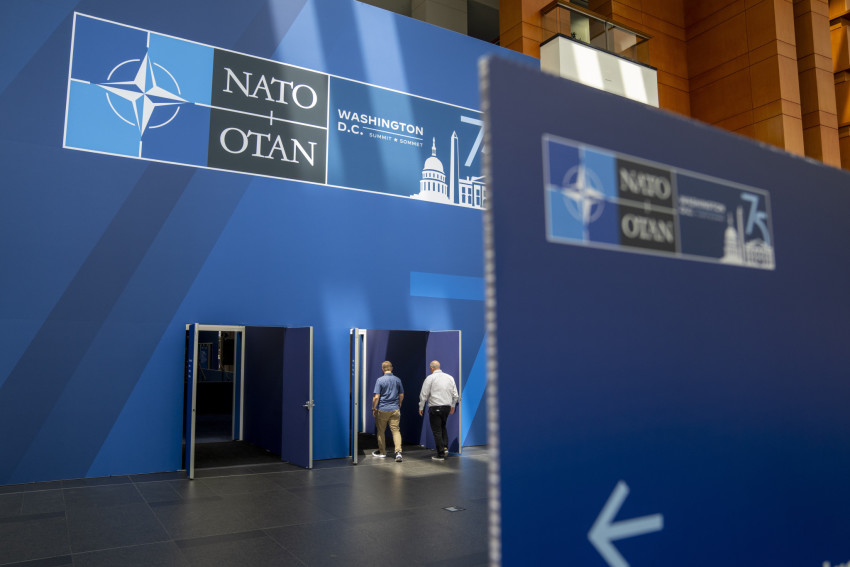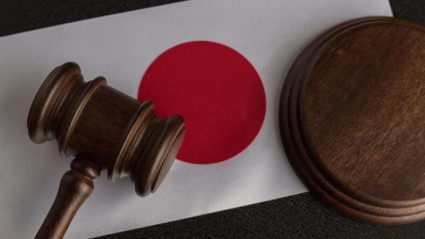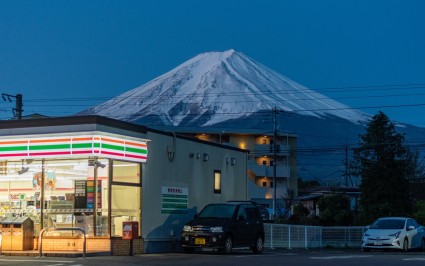In the third year of the war in Ukraine, NATO is set to deepen relations with its four Indo-Pacific partners, which, although not part of the military alliance, are gaining prominence as Russia and China forge closer ties to counter the United States and the two Koreas support opposing sides of the conflict in Europe.
The leaders of New Zealand, Japan and South Korea for the third year in a row will attend the NATO summit, which starts Tuesday in Washington, D.C., while Australia will send its deputy prime minister. China will be following the summit closely, worried by the alliance's growing interest beyond Europe and the Western Hemisphere.
"Increasingly, partners in Europe see challenges halfway around the world in Asia as being relevant to them, just as partners in Asia see challenges halfway around the world in Europe as being relevant to them," Secretary of State Antony Blinken said last week at the Brookings Institution.
America's top diplomat said the U.S. has been working to break down barriers between European alliances, Asian coalitions and other partners worldwide. “That’s part of the new landscape, the new geometry that we’ve put in place.”
Countries with shared security concerns are strengthening ties as competition escalates between the United States and China. Washington is trying to curb Beijing's ambition to challenge the U.S.-led world order, which the Chinese government dismisses as a Cold War mentality aimed at containing China's inevitable rise.
On Monday, Beijing responded angrily to unconfirmed reports that NATO and its four Indo-Pacific partners are expected to release a document laying out their relationship and ability to respond jointly to threats from cyberattacks and disinformation.
Lin Jian, a spokesman for the Chinese foreign ministry, accused NATO of “breaching its boundary, expanding its mandate, reaching beyond its defense zone and stoking confrontation.”
The war in Ukraine, which has pitted the West against Russia and its friends, has bolstered the argument for closer cooperation between the U.S., Europe and their Asian allies. “Ukraine of today may be East Asia of tomorrow,” Japanese Prime Minister Fumio Kishida told the U.S. Congress in April.
The U.S. and South Korea accused Pyongyang of supplying Russia with ammunition, while Russian President Vladimir Putin visited North Korea last month and signed a pact with leader Kim Jong Un that envisions mutual military assistance.
South Korea and Japan, meanwhile, are sending military supplies and aid to Ukraine. The U.S. also says China is providing Russia with machine tools, microelectronics and other technology that allow it to make weapons to use against Ukraine.
South Korean President Yoon Suk Yeol will bring to Washington “a strong message regarding the military cooperation between Russia and North Korea and discuss ways to enhance cooperation among NATO allies and Indo-Pacific partners,” his principal deputy national security adviser, Kim Tae-hyo, told reporters Friday.
New Zealand Prime Minister Christopher Luxon said discussions would “focus on our collective efforts to support the rules-based system.”
The partnership does not make NATO a direct player in the Indo-Pacific but allows it to coordinate with the four partners on issues of mutual concern, said Mirna Galic, senior policy analyst on China and East Asia at the U.S. Institute of Peace. For example, she wrote in an analysis, they can share information and align on actions such as sanctions and aid delivery but do not intervene in military crises outside of their own regions.
The NATO summit will allow the United States and its European and Indo-Pacific allies to push back against China, Russia, North Korea and Iran, according to Luis Simon, director of the Centre for Security Diplomacy and Strategy at Vrije Universiteit Brussel.
“The fact that the Euro-Atlantic and Indo-Pacific alliances are structured around a clear anchor — U.S. military power — makes them more cohesive and gives them a strategic edge as compared to the sort of interlocking partnerships that bind China, Russia, Iran, and North Korea," Simon wrote in a commentary last week on War On the Rocks, a defense and foreign affairs website.
Beijing is worried by NATO's pivot to the east, said Zhu Feng, dean of the School of International Studies at Nanjing University in eastern China. Beijing has insisted that NATO not interfere in security affairs in the Indo-Pacific and that it should change its view of China as a strategic adversary.
“NATO should consider China as a positive force for the regional peace and stability and for global security,” Zhu said. “We also hope the Ukraine war can end as soon as possible ... and we have rejected a return to the triangular relation with Russia and North Korea.”
“In today's volatile and fragile world, Europe, the U.S. and China should strengthen global and regional cooperation,” Zhu said.
NATO and China had little conflict until tensions grew between Beijing and Washington in 2019, the same year the NATO summit in London raised China as a “challenge” that “we need to address together as an alliance." Two years later, NATO upgraded China to a “systemic challenge” and said Beijing was “cooperating militarily with Russia.”
After Russia invaded Ukraine in 2022, leaders of Japan, South Korea, Australia and New Zealand attended a NATO summit for the first time, where statements noted the geopolitical challenges China poses. Beijing accused NATO of “cooperating with the U.S. government for an all-around suppression of China."
Now, Beijing is worried that Washington is forming a NATO-like alliance in the Indo-Pacific.
Chinese Senior Col. Cao Yanzhong, a researcher at China’s Institute of War Studies, asked U.S. Defense Secretary Lloyd Austin last month whether the U.S. was trying to create an Asian version of NATO by emphasizing partnerships and alliances. They include a U.S. grouping with Britain and Australia; another with Australia, India and Japan; and one with Japan and South Korea.
“What implications do you think the strengthening of the U.S. alliance system in the Asia-Pacific will have on this region’s security and stability?” Cao asked at the Shangri-la Dialogue security summit in Singapore.
Austin replied that the U.S. was simply working with “like-minded countries with similar values and a common vision of a free and open Indo-Pacific."
Beijing has its own conclusion.
“The real intent of the U.S. Indo-Pacific strategy is to integrate all small circles into a big circle as the Asian version of NATO in order to maintain the hegemony as led by the United States,” Chinese Lt. Gen. Jing Jianfeng said at the forum.
© Copyright 2024 The Associated Press. All rights reserved. This material may not be published, broadcast, rewritten or redistributed without permission.














21 Comments
Login to comment
WiseOneIn Kansai
This is what China is doing. “breaching its boundary and stoking confrontation.”
Ha Ha!! The world is not that stupid!!
Regional peace, stability and global security do not go well together with China in a sentence.
Legrande
WWIIIhere we come
Daniel Neagari
But what will happen when (not if) Donny becomes the President of the US?
He seems reluctant to helt NATO members, reason "someone may say" he will let Russia invade them away... covevfe!!
kurisupisu
The drums of war are beating…
Peter14
Based on the reality that the world is now a very small place, and shrinking fast. The number of nations that can strike almost anywhere in the world from within their own territory thanks to missile technology, is worrisome to say the least.
NATO does not answer to China or anyone else. As threats emerge, they and their partners look to adapt to address them to maintain peace and security.
Remember until 2014 Russia was a "special NATO partner" enjoying the benifits associated with that, until its instigation of war in Eastern Ukraine and occupying Crimea saw them lose that relationship.
A laughable and false statement since China does nothing but provoke everyone in the region and destabilize the security in a growing sphere around it.
Worried because such an organization makes CCP dreams to dominate neighbours that much harder to achive. Lets all hope such a group can be formed before a regional war starts, so that such an event can be avoided.
Bellflower
"To counter China..."
It's a loaded headline. The implication is that China is an aggressor.
"NATO and China had little conflict until tensions grew between Beijing and Washington in 2019"
Think about this statement. It is revealing, even embarrassing. It means NATO simply followed US policy.
This is why some people say the NATO countries are US lapdogs.
theFu
NATO countries like being treated well by the US and the President. Biden does that. Trump does not. Trump is a petty man, we've all seen it.
The only people looking forward to Trump winning are Putin and the 20% of disillusioned Americans who actually believe he isn't guilty of 100+ crimes and that he shouldn't be tried for anything, ever. I just hope that a sufficient number of real Americans vote for anyone other than Trump. Trump doesn't like science-based decisions because he's too stupid to bother understanding. He constantly lies. Over 30,000 lies (proven lies, not just opinion differences), and he doesn't know how the American govt is designed to work. He's a waste of water and minerals.
kaimycahl
@Bellflower There is nothing to think about!!! China is the aggressor on all accounts!!!
gaijintraveller
Ha Ha!! The world is not that stupid!!
Yet many in the world are stupid enough to believe that US is a positive force for peace whereas it has been at war for all but a handful of the years it has been in existence. Right now it supplies weapons to Israel, supplies weapons to be used for genocide.
I am not stupid enough to believe the US is a positive force for peace.
TokyoOldMan
Without the CCP China, should it find its own fair Democracy, could and probably would, surpass the U.S. in pretty much everything. But with the CCP, an evil almost terrorist like organisation, China has little or no hope of being a trustworthy member of the Global community.
GuruMick
Bit late.
Like bit late to reverse all those corporate decisions to move operations to China.
The US and west will just have "to own " decisions made that China accepted with a Chinese view, always in the longer term .
Chickens coming home to roost.
TaiwanIsNotChina
China is the clear aggressor in the South China Sea, threatens Taiwan, and is a clear investor in the elimination of Ukraine.
elephant200
NATO even cannot save their own or their eastern Europe partners. Their arsenals were in heavy attrition after two years if Ukraine war. They better mind their own business, NATO is stretching thinner !
sakurasuki
NATO is North Atlantic Territory Organization, in case they forgot what A stands for, it's not pacific, it's Atlantic!
deanzaZZR
One more example of an out of control bureaucracy trying to expand, hire more people and spend more tax money.
Yrral
Only coward need the protection of the US ,these are people American look down on
TaiwanIsNotChina
You haven't seen our air forces and navies, throwing back the dictatorships as intended.
Yrral
PT it time for European and Asian nation to.man up, American like people that are cowards to defend themselves
itsonlyrocknroll
Biden delivers remarks on the 75th anniversary of NATO
https://www.youtube.com/watch?v=rHI_dD8OWsg
Make of this as you will.
Ukraine will not stop President Putin, without Europe risking boots on the ground with comprehensive land sea and intelligence support.
A possible third world war.
stormcrow
Russia & China & Iran & North Korea attempting to lead the world into an ugly Orwellian future .. . How dreadful!
voiceofokinawa
NATO seems to be expanding its sphere of influence in the Indo-Pacific region and reduce the enormous burden the U.S. has to pay for the defense of the region or, to be more precise, to defend its vested interests in the region. Thus, the U.S. is no doubt behind the scenes, instigating Japan, for example, to sign various treaties with NATO nations. This article confirms this assumption of mine.